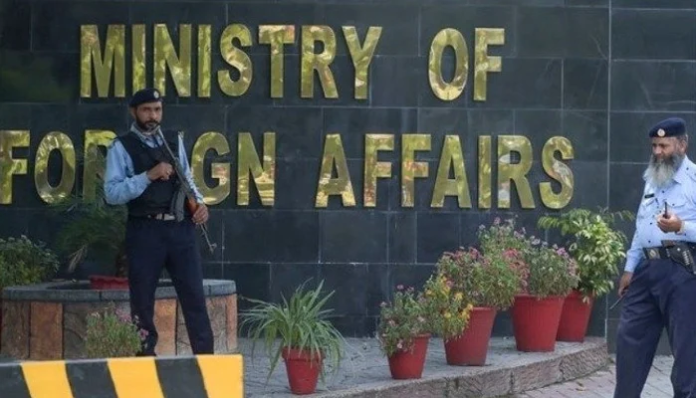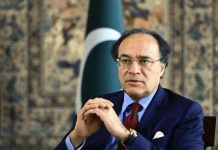ISLAMABAD, MAY 28 (DNA)The Ministry of Foreign Affairs (MOFA) on Wednesday issued a strong criticism over the recent remarks by the Indian Prime Minister Narendra Modi, calling them “inflammatory” and reflective of a broader pattern of historical revisionism, internal repression, and aggressive posturing.
The Foreign Office statement said that Modi’s comments marked a “troubling departure from international norms” and highlighted the disconnect between India’s regional conduct and its global aspirations.
The Indian PM intensified his rhetoric against Pakistan, describing recent cross-border incidents as part of a “deliberate war strategy” rather than mere proxy warfare. Speaking at a ceremony in Gandhinagar, Gujarat, on Tuesday, Modi warned that India would respond “accordingly” if confronted with acts of war.
“It is regrettable, though not entirely unexpected, that the Indian Prime Minister has, once again, set aside the ongoing project of historical revisionism and the internal repression of minorities to deliver yet another inflammatory monologue,” MOFA statement read.
The FO particularly took note of the Indian premier’s references to water, a shared resource governed by treaty obligations.
Modi had claimed that the water resource issues in Indian Illegally Occupied Jammu and Kashmir (IIOJK) and the Indus Waters Treaty had been “put in abeyance”, accusing previous Indian governments of neglecting dam maintenance and water infrastructure.
“His references to weaponising water, a shared, treaty-bound resource, reflect a troubling departure from international norms and a stark contrast between India’s conduct in the region and its declared global ambitions.”
MOFA further stated that “the Indian government is linked to extraterritorial assassinations and foreign subversion,” and described India’s administration in Jammu and Kashmir as one marked by “systematic repression.”
“It is ironic that such a state now attempts to claim the mantle of victimhood,” the ministry added, accusing the current Indian government of promoting “mob violence,” “hate campaigns,” and “targeting religious minorities.”
Pakistan urged India to adhere to the “core principles of international order,” which include respect for sovereignty, treaty obligations, and restraint in rhetoric and conduct. “Jingoism may stir applause on the campaign trail, but it undermines long-term peace and stability,” the statement warned.
The ministry concluded by calling on India’s youth to reject divisive politics and instead contribute to “a future defined by dignity, reason, and regional cooperation.”
The Indian premier has been making hateful remarks against Pakistan despite a ceasefire agreed by Islamabad and New Delhi following the recent standoff between the two nations.
The nuclear-armed nations engaged in a short but deadly conflict after India launched unprovoked missile strikes inside the Pakistani territory on the night of May 6 and 7, in what it said was targetted at militant camps linked to the Pahalgam attack in against the killing of tourists in the IIOJK.
The Indian strikes killed several Pakistani civilians including women and children.
Among a slew of measures against Pakistan, New Delhi also unilaterally suspended the Indus Waters Treaty (IWT), an agreement negotiated by the World Bank in 1960.
In a measured and restrained response, the Pakistan armed forces launched a large-scale retaliatory military action, named “Operation Bunyan-um-Marsoos”, and targeted several Indian military installations across multiple regions.
Pakistan Air Force downed six Indian fighter jets, including three Rafales, and dozens of drones. After at least 87 hours, the war, provoked by India, ended on May 10 with a ceasefire agreement brokered by the United States.

















